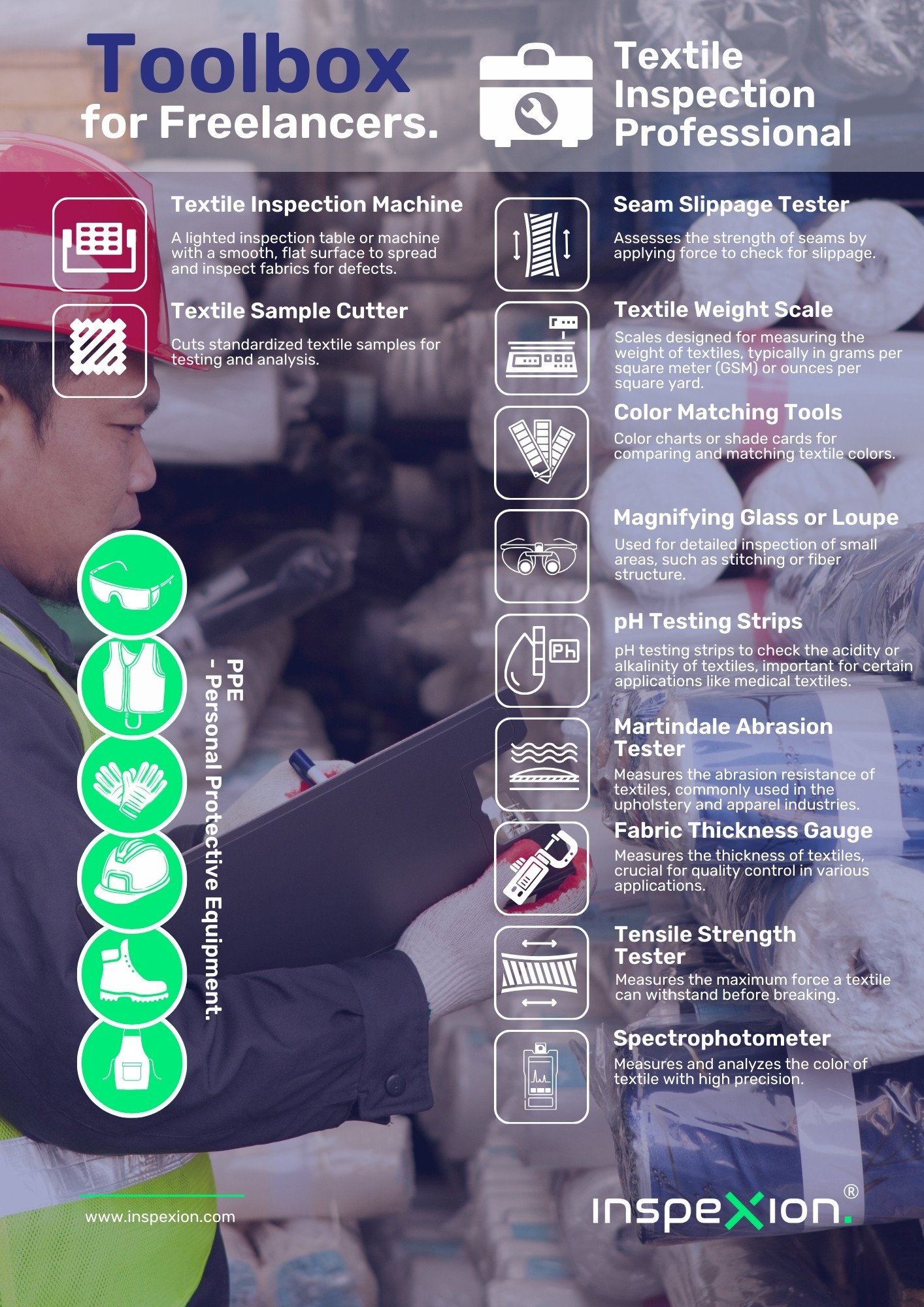The Essential Toolbox for Textile Inspectors
When it comes to ensuring the quality and integrity of fabrics in the textile industry, fabric inspection professionals rely on a carefully curated toolbox equipped with a range of specialized tools and equipment. These professionals play a crucial role in maintaining the standards and specifications of fabrics used in various applications, from apparel to upholstery. Let's take a closer look at the essential items that make up the toolbox of a textile inspection professional.
Textile Inspection Machine: At the core of a textile inspector's toolkit is a quality inspection machine. This illuminated table or machine provides a smooth, flat surface for spreading and meticulously examining textiles for defects.
Measuring Tape: Precision is paramount in textile inspection. A measuring tape aids inspectors in assessing the dimensions of textiles, ensuring they meet specific length and width requirements.
Textile Weight Scale: Determining the weight of textiles is crucial, and a calibrated scale for measuring grams per square meter (GSM) or ounces per square yard is an indispensable tool.
Color Matching Tools: Color consistency is a key consideration in the textile industry. Textile inspectors use color charts and shade cards to compare and match textile colors accurately.
Light Booth or Color Viewing Cabinet: Creating a controlled lighting environment is essential for assessing textile colors under consistent conditions. A light booth or color viewing cabinet aids inspectors in making accurate color evaluations.
Magnifying Glass or Loupe: For a detailed inspection of small areas, such as stitching or fiber structure, textile inspectors employ magnifying glasses or loupes.
pH Testing Strips: Certain applications, such as medical textiles, require textiles with specific pH levels. pH testing strips help textile inspectors assess the acidity or alkalinity of textiles.
Martindale Abrasion Tester: In industries like upholstery and apparel, where textiles undergo constant wear, a Martindale abrasion tester is used to measure a textile's resistance to abrasion.
Pilling Tester: To evaluate a textile's tendency to form pills or fuzz balls, textile inspectors utilize a pilling tester, an essential tool for assessing textile durability.
Textile Thickness Gauge: Measuring the thickness of textiles is crucial for quality control. A textile thickness gauge ensures textiles meet specified standards.
Moisture Meter: Understanding the moisture content of textiles is essential, as it can impact their properties. A moisture meter helps textile inspectors make accurate assessments.
Seam Slippage Tester: Strength and durability of seams are critical aspects of textile quality. A seam slippage tester assesses the strength of seams under applied force.
Tensile Strength Tester: Measuring the maximum force a textile can withstand before breaking is essential for assessing its tensile strength. Textile inspectors use a tensile strength tester for this purpose.
Spectrophotometer: For precise color measurement and analysis, textile inspectors employ a spectrophotometer, ensuring accurate and consistent color assessments.
Textile Sample Cutter: Preparing standardized textile samples for testing and analysis is made easy with a sample cutter, streamlining the inspection process.
Lint Roller: During inspections, removing lint and loose fibers from the textile surface is crucial. A lint roller helps maintain a clear view during assessments.
Textile Scissors: High-quality scissors are a staple in the toolbox for cutting and examining textile samples with precision.
Marker Pens and Labels: To mark defects or areas of interest on textile samples, inspectors use marker pens and labels, aiding in documentation and communication.
Documentation Tools: Recording inspection findings is a fundamental part of the textile inspection process. Textile inspectors utilize notebooks, cameras, or tablets for documentation purposes.
Personal Protective Equipment (PPE): Depending on the materials being inspected, textile inspectors prioritize safety with the use of appropriate PPE, such as gloves or safety glasses.
In conclusion, a well-equipped toolbox is indispensable for textile inspectors, enabling them to conduct thorough assessments and ensure that textiles meet the highest quality standards. Regular calibration of testing equipment, adherence to industry standards, and attention to detail are the hallmarks of a successful textile inspector.





